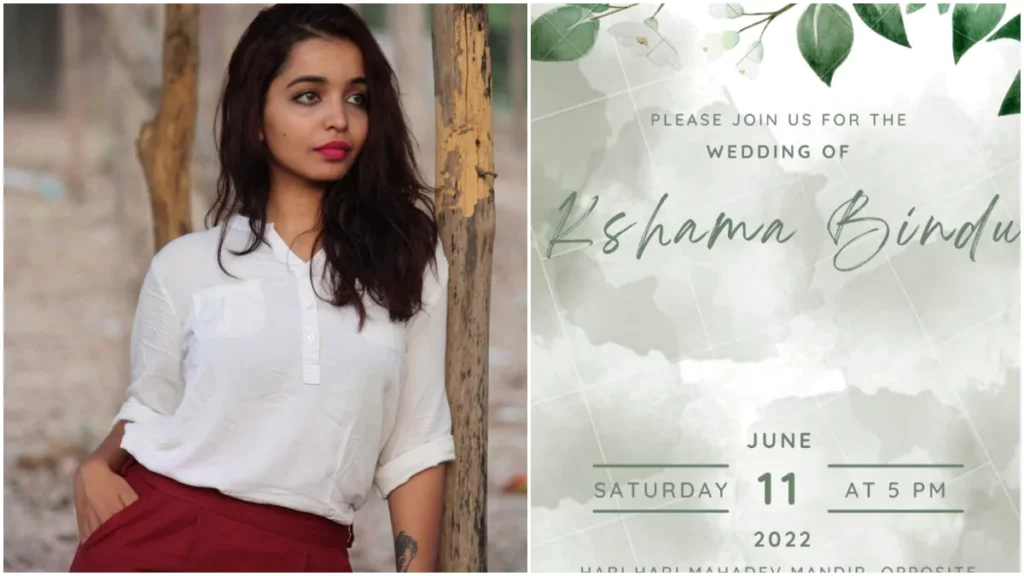By P.K.Balachandran
Colombo, June 4:: The recent media report saying that 24-year old Kshama Bindu of Vadodra in Gujarat intends “to marry herself” in a formal ceremony on June 11, must have come as a surprise, if not shock, to most South Asians. There has not been a previous case of “sologamy” in this part of the world.
But looking at the literature on the subject, sologamy has been around in the West and even Japan for sometime now, and is catching up for various sociological reasons. India’s first case of sologamy has created awareness of a new trend. Sologamy or marrying oneself, follows an increase in the population of single persons.
Kshama Bindu is from a family of professionals, her father being an engineer working in South Africa and her mother is employed in Ahmedabad. Kshama is a sociology graduate and is a Recruitment Officer in a private company in Vadodra. She is quoted in the media as saying that she is so fond of herself that she doesn’t wish to marry anyone else and that she has decided to go through the entire ritual of a Hindu wedding, including circumambulation of the sacred fire uttering vows of fidelity “to herself.”
A BBC report by Didem Tali dated December 22, 2017 says that more and more people around the world are choosing to “marry themselves” with all the traditional ceremonies, and that businesses are catering to the new trend. But the question as to what motivates people to say “yes” to themselves. Is it due to a great love for oneself or is it a failure to find love from others?
Didem Tali quotes New York-based performance artiste and sologamist, Gabriele Penabaz, on why she chose to marry herself. Penabaz said that she took to sologamy to assuage her “broken heart.” Feeling strengthened and self-assured after marrying herself, she began popularizing the concept, and “married off” more than 1,500 people.
According to Penabaz, the ceremonies were “very cathartic”, with the person marrying herself displaying a mixture of joy and sorrow. “80% of the people whom I married to themselves shed a tear reading their vows. They usually say things like ‘I forgive myself’ and ‘I will no longer call myself ugly’,” Penabaz said.
Sologamy is now a service industry in the West. Tali mentions Dominique Youkhehpaz who offers a 10-week online course to prepare brides or grooms for sologamy along with counseling for US$ 200.
According to Youkhehpaz, sologamy suits people in abusive relationships. “After sologamy they step more fully into their life’s work or meet their beloved after marrying themselves,” she said.

Sociologists point out that Sologamy has appeared at a time, when, in the West, the percentage of unmarried or divorced/separated people has been rising. As one would expect, the typical clients are urban, affluent and educated women. Interestingly, the group includes even women who are already married.
Many people may choose to remain single rejecting the institution of marriage as it might mean surrendering one’s independence or accepting an unequal conjugal relationship. But there are others who want to remain single without rejecting the concept of marriage and the rituals and sentiments attached to it. It is the latter category of persons who go for sologamy, which combines matrimony with singleness.
However, sologamy stems from a growing trend towards singlehood, especially in the West. Dr. Bella DePaulo of the University of California Santa Barbara (UCSB), who authored “Singled Out: How Singles Are Stereotyped, Stigmatized, and Ignored, and Still Live Happily Ever After” dwells on the phenomenon of singlehood, its challenges and prospects. DePaulo decided to remain single and propagate the blessings of being single. She also expresses sympathy for those who opt for sologamy.
In a piece in Psychology Today dated September 14, 2017, DePaulo says the following about her decision to be single: “Peak wedding season has passed and once again, I did not marry. That makes 64 summers of my life with no wedding for me. I never did want to marry another person, so that’s not the point. As a lifelong single person, though, I’m now getting asked a different question: Why don’t I marry myself?”
“I’ve spent the last two decades of my life making the case for embracing single life, fully and unapologetically. So I’m sympathetic to the sentiments motivating practitioners of sologamy. You don’t need another person to complete you. You can love yourself. You can commit to yourself. You can articulate what’s important to you, and then vow to live by those values, in the presence of the significant people in your life. You should feel just as entitled to celebrate your life as couples do to celebrate theirs.”
DePaulo points out that people who are single, are changing the face of America. More than 40% of the nation’s adults—over 87 million people—are divorced, widowed, or have always been single. There are more households comprised of single people living alone than of married parents and their children. Americans now spend more of their adult years single than married, she says.
Many of today’s single people have engaging jobs, homes that they own, and a network of friends. This is not the 1950s—singles can have sex without marrying, and they can raise smart, successful, and happy children. It should be a great time to be single. Yet, too often, single people are still asked to defend their single status by an onslaught of judgmental peers and fretful relatives, DePaulo regrets.
Prominent people in politics, the popular press, and the intelligentsia have all taken turns peddling myths about marriage and singlehood. Marry, they promise, and you will live a long, happy, and healthy life, and you will never be lonely again, she points out.
In her comments on DePaulo’s book, Dr.E. Kay Trimberger, author of The New Single Woman, and professor emerita of women’s and gender studies at Sonoma State University, says that DePaulo debunks several myths about singlehood, such as that they are miserable and lonely; that there would be no one to love them back, that single men are horny, slovenly, and irresponsible, sexy, fastidious, frivolous, and gay; that the kids of singles are doomed and that singles will grow old alone and die in a room by themselves and no one will find them for weeks.
“DePaulo lays out the many, often subtle denigrations and discriminations faced by single adults in the US. She addresses, too, the resilience of single women and men in the face of such singlism.” (The Citizen)
END





























































